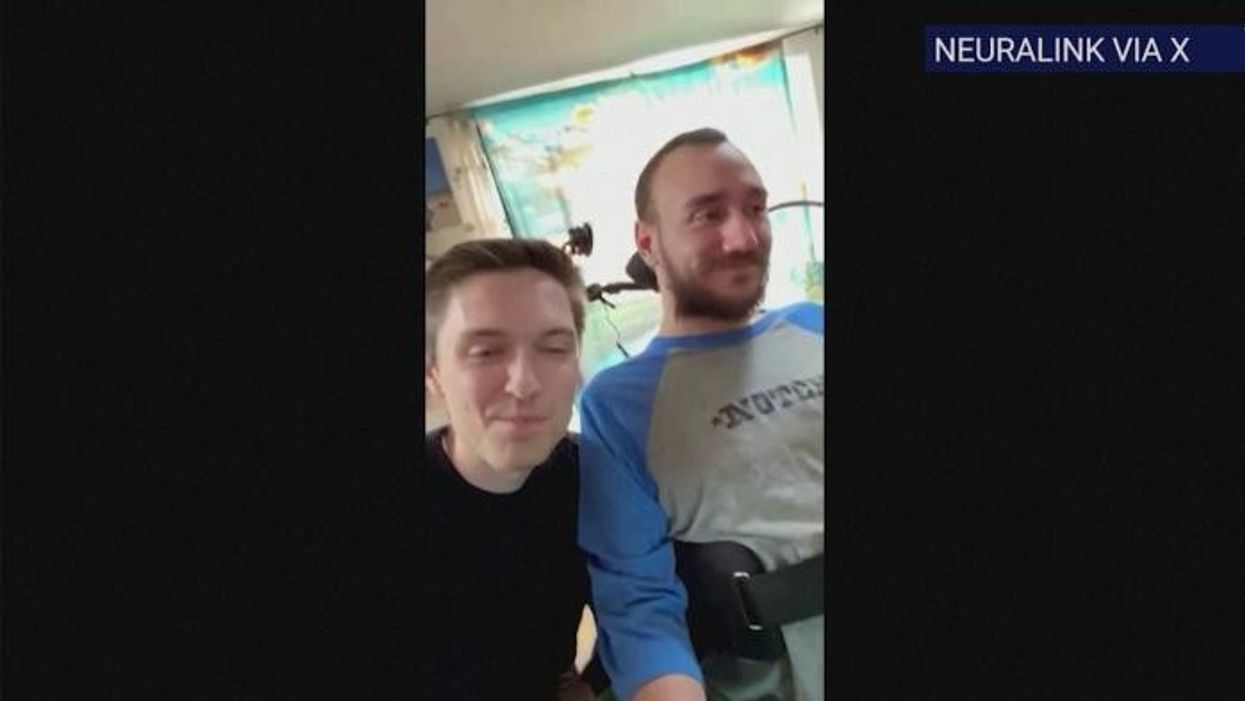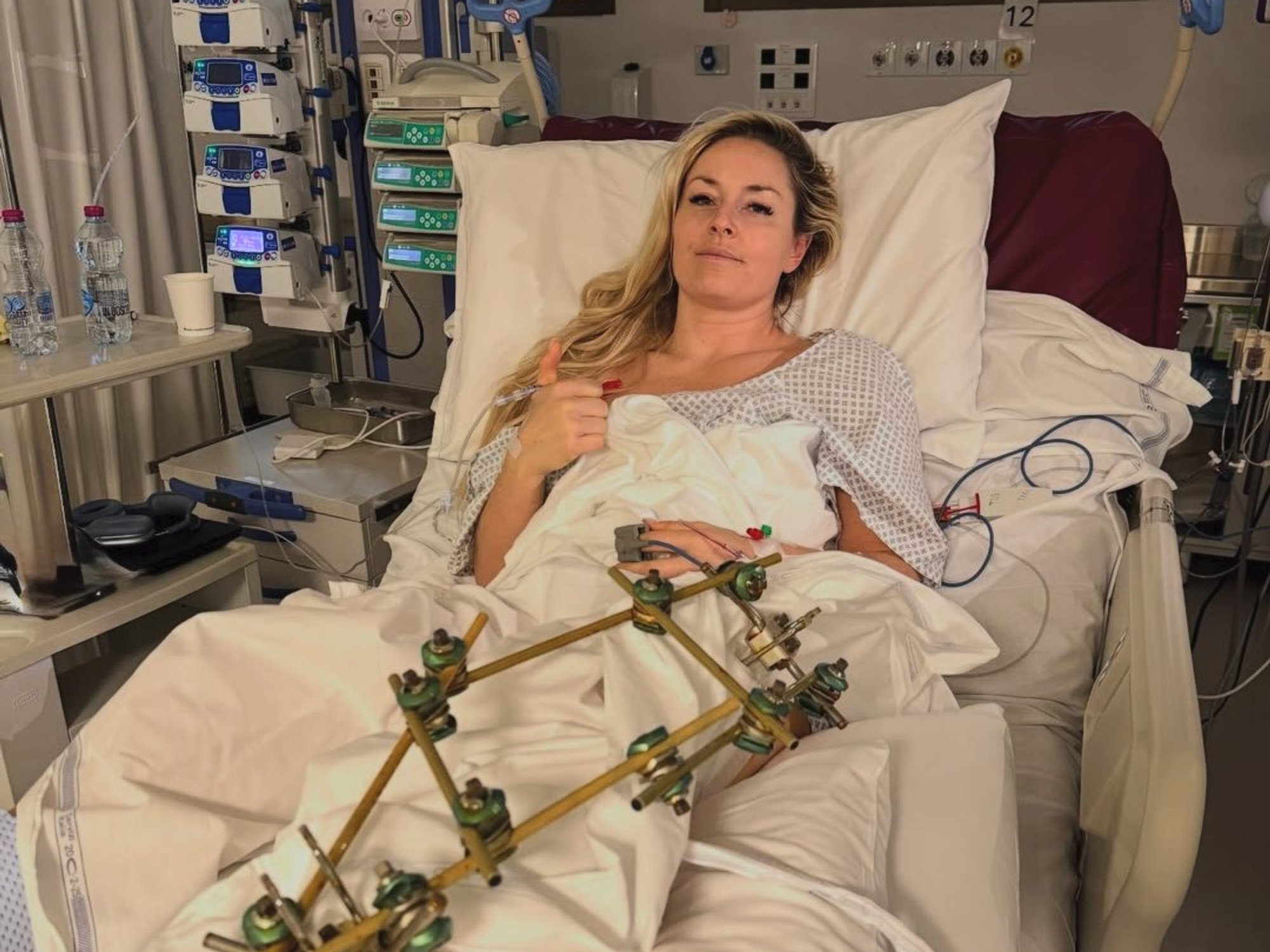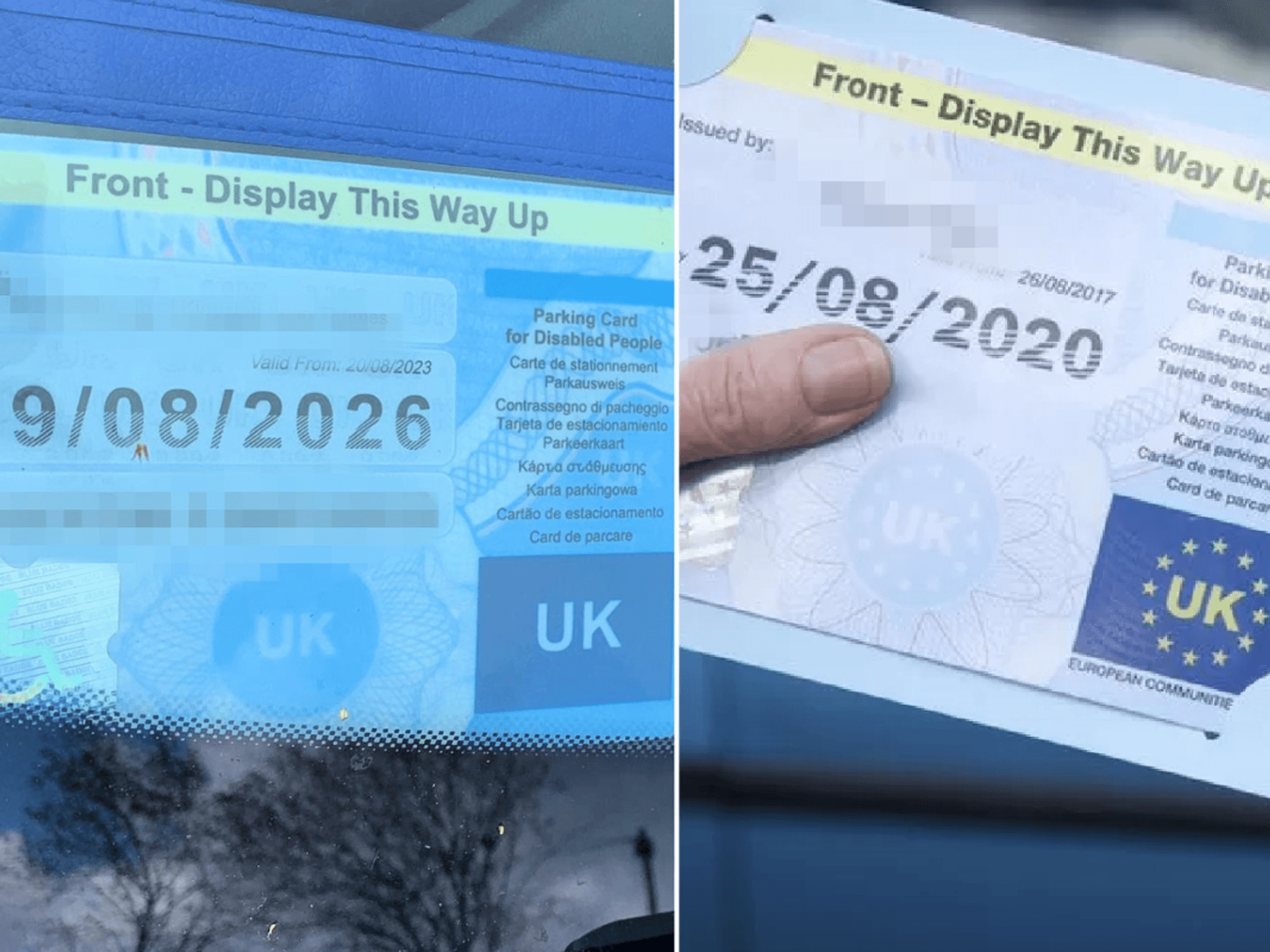Want Elon Musk's brain-chip implanted into YOUR head? How you can register for Neuralink human trials

The medical start-up is recruiting for its next human trial
- Neuralink started to recruit patients for its first human trials last year
- It's still looking for new volunteers to test the brain-chip
- You'll need to be aged over 18 and live in the USA or Canada
- It's looking for people with a significant physical impairment
- First successful operation on a human took place in January
- The 29-year-old patient confirmed he can play chess using the chip
- But he cautioned Neuralink had "run into some issues"
Don't Miss
Most Read
Latest
How do you fancy having a chip built by Elon Musk's latest venture implanted deep inside your brain?
If the answer is "no", then there's really no need to continue reading — could we interest you instead in this article about what really happens when you click on that "I'm Not A Robot" button to login to websites?
But if you are interested in taking part in the experimental human trials for the brain-chip, we've got instructions on how you can register for Neuralink's latest trials and the T&Cs that could halt your application in its tracks.
Neuralink uses robots to insert its computer chip, which is packed with 1,024 electrodes that monitor brain activity in the area that controls the intention to move, beneath the skull and into the brain.
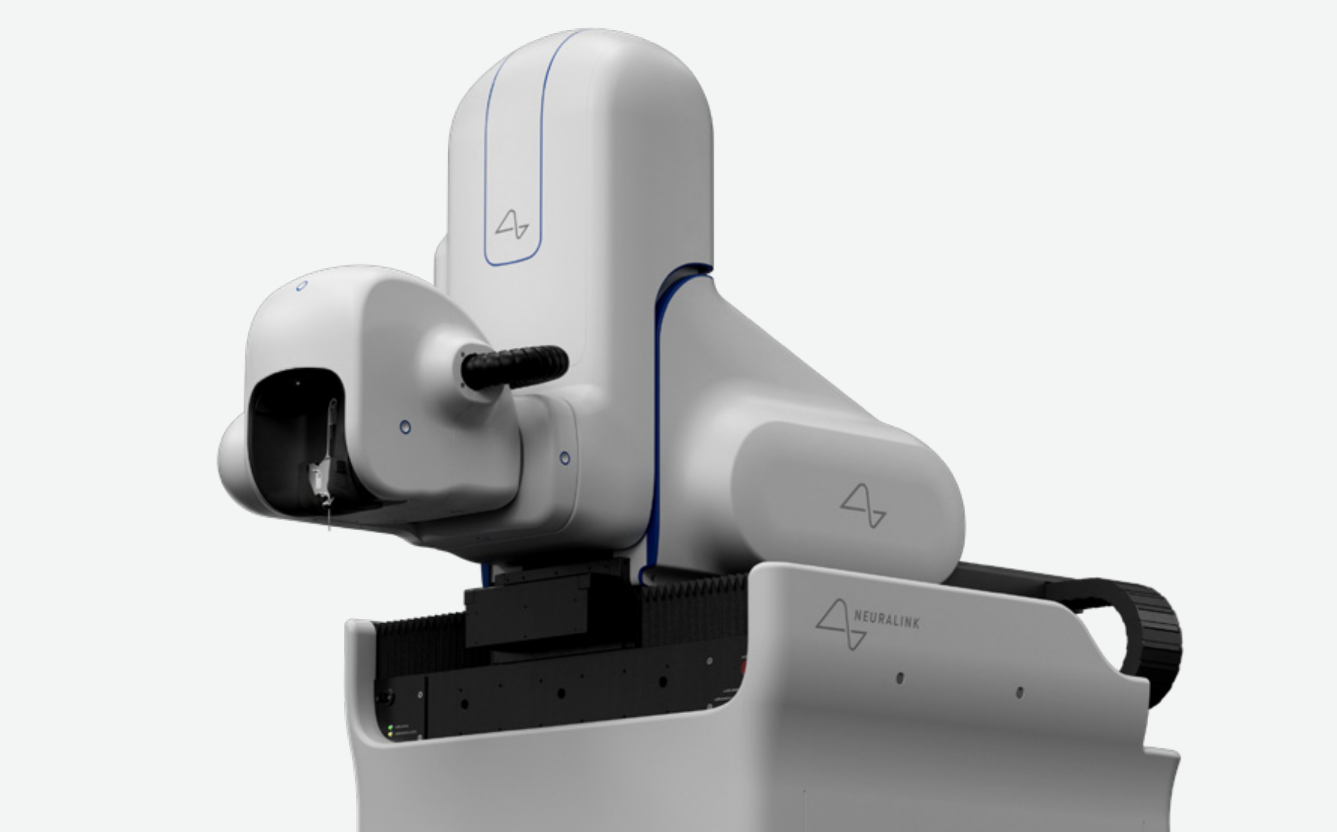
The experimental chip is embedded into the brain in an operation performed by robots
|NEURALINK
When everything is working correctly, the small chipset will allow the human brain to interact with digital devices, controlling a cursor on-screen, type without touching a keyboard, and much more.
Dubbed the PRIME Study (Precise Robotically Implanted Brain-Computer Interface), Neuralink says its initial clinical trial will take roughly six years to complete. If you want to get your name on the list, you can register your details with the futuristic start-up company here.
Or you can read the brochure for the brain-chip trials here.
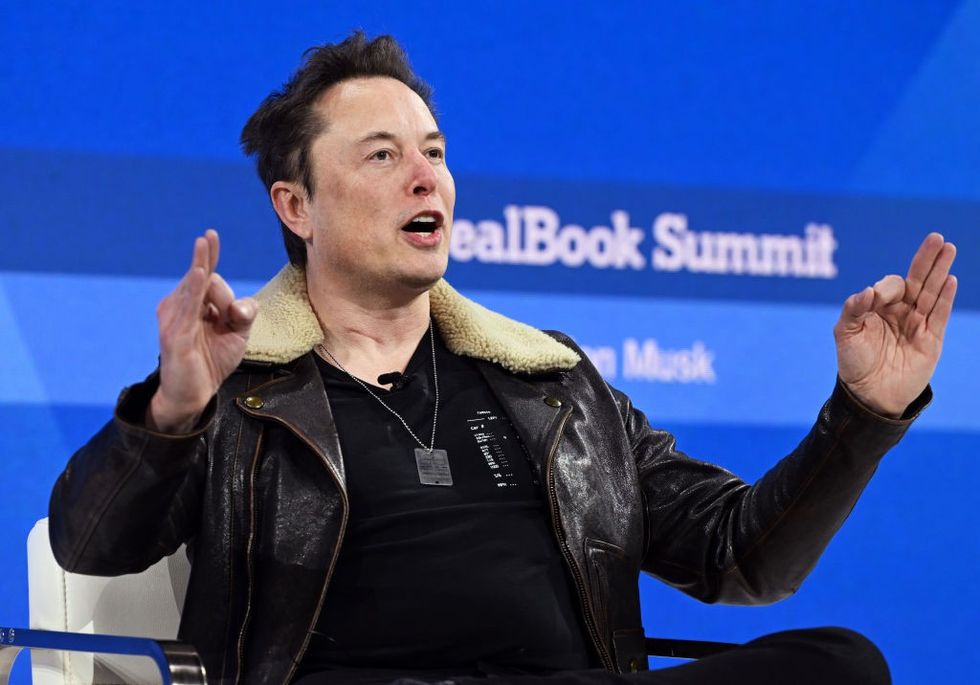
SpaceX and Tesla CEO Elon Musk has poured millions into the medical start-up Neuralink
|GETTY IMAGES
"By participating in the study, you'd be helping to redefine the boundaries of human capability," Neuralink claims in a promotional video about PRIME. "Imagine the joy of connecting with your loved ones, browsing the web, or even playing games using only your thoughts."
There are several conditions to be eligible for the PRIME trial with Neuralink. First off, applicants will need to be residents of the United States of America or Canada to be eligible. Neuralink is headquartered in Fremont, California and has received accreditation from the Food and Drug Administration, FDA, to conduct human trials ...operating on patients in other countries would require approval from separate regulatory bodies.
You'll need to be 18 years or older to take part in the Neuralink trials.
Starting the application for the PRIME Study, you'll be asked four questions to determine whether you're eligible for this phase of the trial, which sees Neuralink looking for people with paralysis.
Applicants must have a significant physical impairment, like quadriplegia caused by a cervical spinal cord injury, paraplegia, visual impairment or blindness, amyotrophic lateral sclerosis, aphasia or the inability to speak, hearing impairment or deafness, or major limb amputation. "We're only accepting applications from individuals with qualifying conditions at this time," Neuralink states.
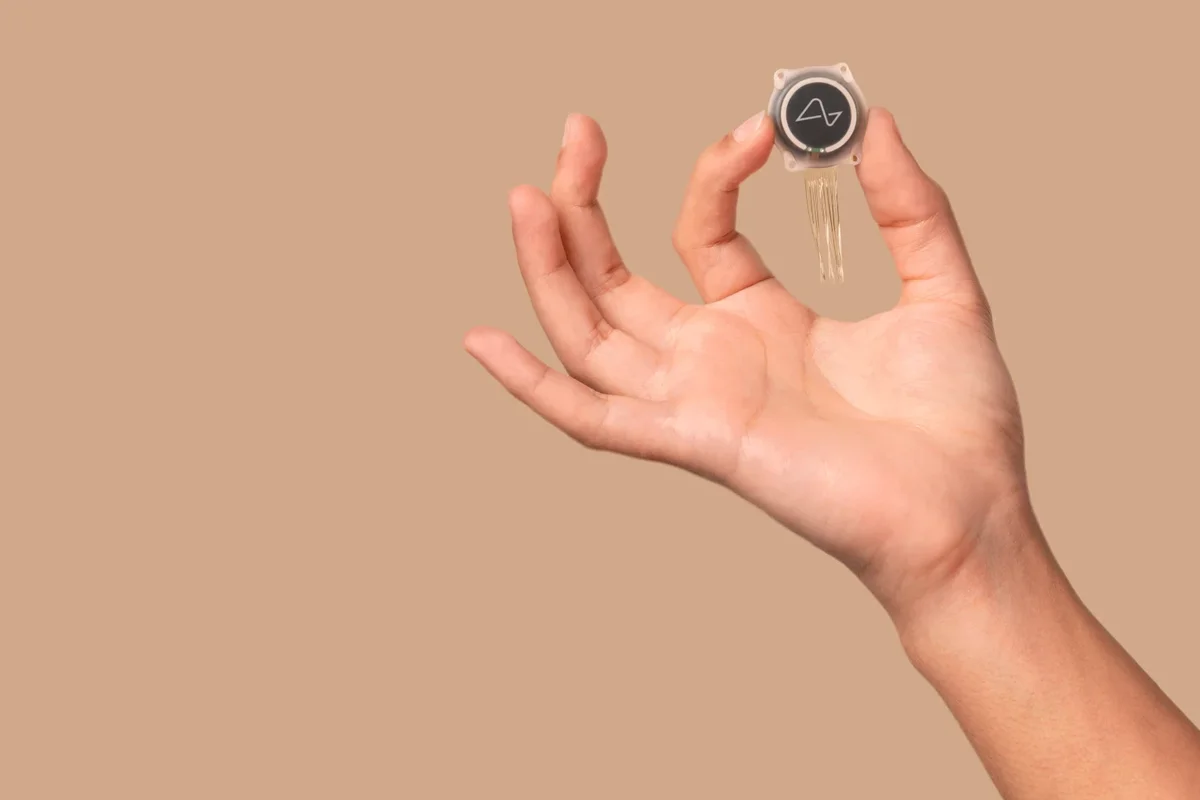
Neuralink has packed 1,024 electrodes into the chip, which is designed to monitor brain activity that usually dictates movement to repurpose those thoughts to control digital interfaces
|NEURALINK
People with these conditions are most likely to enjoy quality-of-life improvements. So far, only one person has received the Neuralink brain-chip implanted. Noland Arbaugh underwent surgery back in January and revealed his progress by controlling a game of chess on a PC using his thoughts earlier this month.
The 29-year-old, who has been paralysed below the shoulders after a diving accident several years ago, likened the experience of using the Neuralink brain-chip to telepathy or using “the Force” in the Star Wars franchise. He admitted to using the experimental chip to play Civilization VI for eight hours straight.
"The surgery was super easy," Mr. Arbaugh told viewers during a recent livestream video, which was streamed on Elon Musk's social media platform X, formerly Twitter. "I literally was released from the hospital a day later. I have no cognitive impairments."
Elaborating on his experience with the brain-chip, Mr. Arbaugh admitted that it's "not perfect" and medical start-up Neuralink has "run into some issues."
"I don't want people to think that this is the end of the journey, there's still a lot of work to be done, but it has already changed my life," the 29-year-old volunteer added. However, he didn't go into detail about the problems he'd faced with the cutting-edge implant, which had only been tested in mice before his surgery.
Neuralink, which was started back in 2016, received approval for human trial recruitment in September 2023. At the time, the Californian company said it was looking for volunteers aged 22 or older with quadriplegia caused by a cervical spinal cord injury or amyotrophic lateral sclerosis.
The livestream on X this week marked the first time we've learned the identity of the volunteer.
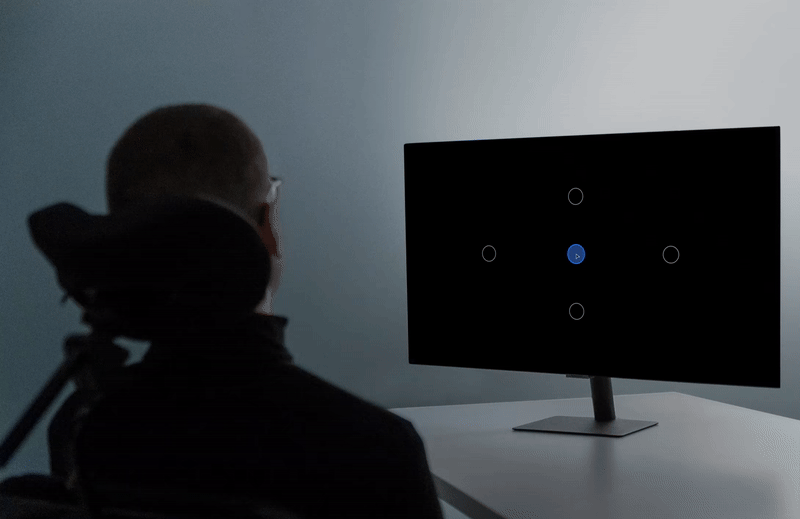
Neuralink has shared the following clip on its website, offering a glimpse of what it hopes to achieve with its brain-chip experiment
|NEURALINK PRESS OFFICE
Speaking about other possibilities of the Neuralink chip, Mr. Arbaugh revealed that he's been able to return to a favourite computer game, Civilization VI. "I had basically given up playing that game," he said, before adding "you all (Neuralink) gave me the ability to do that again and played for 8 hours straight."
However, not everyone was blown away by the disclosures from the Neuralink livestream. Kip Ludwig, former program director for neural engineering at the U.S. National Institutes of Health, blasted the advancements detailed by Neuralink, stating that nothing shown in the livestream was "a breakthrough."
"It is still in the very early days post-implantation, and there is a lot of learning on both the Neuralink side and the subject's side to maximize the amount of information for control that can be achieved," he added.
Even so, Ludwig said it was a positive development for the patient that they have been able to interface with a computer in a way they were not able to before the implant. "It's certainly a good starting point," he said.
When successful surgery was confirmed by Neuralink at the start of the year, multi-billionaire Elon Musk took to X to explain his vision for Neuralink. He tweeted: "Initial users will be those who have lost the use of their limbs. Imagine if Stephen Hawking could communicate faster than a speed typist or auctioneer. That is the goal."
In previous public statements, the US company revealed the implant contains 1,024 electrodes that record neurological activity and wirelessly beam the data to a connected app. This uses an algorithm to translate the brainwaves into computer controls.
The initial goal was to enable someone to control a computer mouse pointer on-screen or type on a keyboard using their thoughts — something the start-up now seems previously close to achieving.
The first human trial, known as PRIME (Precise Robotically Implanted Brain-Computer Interface), will run for 18 months in total. Researchers will allow the patient back home, with regular check-ins at a clinic. A five-year follow-up comprising 20 clinic visits will succeed the initial trial period.
Musk says the technology tested by Neuralink has huge implications for society. According to the the 52-year-old multi-billionaire, the surgical insertion of these chips could be used to treat conditions like obesity, autism, depression, and schizophrenia.
LATEST DEVELOPMENTS
- Windows 11 users complain latest update causes PCs to crash
- BT trials landline that resurrects best features of traditional phone lines
- Upgrade your ageing Sky box or lose access to all Sky TV channels
- Your iPhone's biggest new upgrade might actually be built by Google
Neuralink, which was valued at $5 billion last year, has faced repeated calls for scrutiny regarding its safety protocols. Reuters reported last month that the firm was fined for violating United States Department of Transportation rules regarding the movement of hazardous materials.


